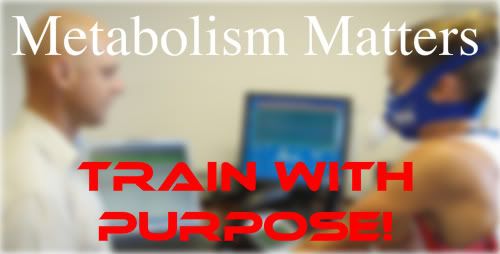Looking for a Christmas present
that is exciting and different?
How about giving a special someone their personalised guide to reaching their fitness/health goals in 2010?!
How?
Metabolic Testing is a breathing test that measures
your fat burning at rest and during exercise
What will this test do for me?
Give you a personalised exercise program that will:
- Give you exact intensity, frequency and type of exercise suitable for your fitness goals
- Make you burn fat faster
- Optimise your energy levels
- Improve your health and stamina
- Build muscle tone
- Improve endurance and performance
Testimonials:
"I struggled with bulimia for much of my teenage years, though I had won the battle with my eating disorder I struggled with losing weight after the birth of my daughter. I ate well and went to the gym five days a week but failed to lose any weight. I also had a real desire to start running but could not manage to run more than one kilometre. After undergoing the Metabolic Testing I discovered that I did not lose weight easily as my metabolism had been affected by my eating disorder. After undergoing the program I lost 8kg (in three months) and can now easily run 10km. I plan to compete in a half marathon next year. I am happy and healthy!" – Tina B.
"Metabolic Testing is a winner! Thanks Mark, the interval training is producing some great results. (Recently; 1st Qld Criterium Champs and 1st Tour Scenic Rim, Cat 3, 1st Qld Road Race Champs, 1st Qld Team Time Trial Champs, Qld Masters Cyclist Of The Year Award). The Heart Rate Zones have taken all the guess work out of my training and racing. I have also noticed good improvements with my carbohydrate stores as I have more energy at the end of the race when it counts! Metabolic Testing is the best thing I have done to provide the structure that was missing in my training. Thanks for your help and support. –David B.
You can buy a Christmas Voucher at Physiologic
Or call 55 787 155 for more information








